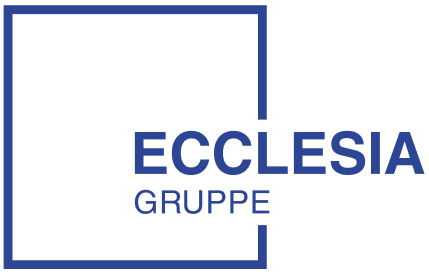
2nd Future Congress "Managing the Social Economy"
After the successful premiere last year, the Evangelische Johanneswerk, Curacon and the Ecclesia Group held the 2nd Future Congress “Managing the Social Economy” in Essen on June 5 and 6, 2024. Around 170 decision-makers from care services, workshops for people with disabilities, care facilities and other social economy companies gathered at the Zeche Zollverein to discuss and exchange ideas on this year's main topic of solidarity. They received fresh impetus from renowned keynote speakers and speakers who illuminated the topic from different perspectives in keynote speeches and panels.
“In view of the current social challenges, solidarity is more important than ever,” said Sirkka Jendis, managing director of Tafel Deutschland e.V., who, together with Prof. Dr. Dr. Wolfgang Huber, former chairman of the Council of the Evangelical Church in Germany and member of the German Ethics Council, and AI expert Sascha Lobo, spoke at the opening event on the first evening. ”Because at the food banks, everyone is united by solidarity. That is why I think it is important and right that this topic is the focus of the event.” In her keynote speech, she provided deep insights into her daily work at the food banks, which has become significantly more difficult in recent years. Since the number of people in need has risen significantly, not least due to the refugees from Ukraine, there is a lack of food, locations, time and volunteers, without whom the work of the food banks would not be possible. That is why it is calling for a strengthening of volunteering, which sustainably promotes social cohesion in society. Wolfgang Huber also emphasized that solidarity is always associated with human closeness. Because even the most perfect welfare state does not eliminate the need for personal advocacy for the poor and vulnerable.
Actively influencing AI transformation
While the first two keynote speakers focused on the solidarity practiced in the social economy, Sascha Lobo called on the power of the social economy: “Artificial intelligence is here. So there is no alternative to dealing with it. And who could do more for our society with the possibilities of AI than the social economy? Get on with it!” In his keynote speech, he used specific examples to demonstrate the many possible applications of the technology in the social and health care industries, and he dispelled the prejudices and fears that have been fueled by media coverage of the topic. After all, generative AI is not only a step forward for people with disabilities, but also an effective solution for successfully countering the shortage of skilled workers and increasing efficiency. Not only can so-called AI agents replace conventional nursing staff in non-critical areas, but the technology has also shown its advantages in diagnostics, where it can answer patient questions better than trained doctors. Since this development can no longer be stopped, he recommends taking a close look at the AI transformation and actively influencing it. Because the future will be hybrid and if machines replace humans in certain areas, humans can concentrate on other areas.
Socio-ecological transformation of real estate
On the second day, the topics of living, financing, digitization and artificial intelligence were examined in various panels. First, various experts provided an insight into the current situation of social housing construction and made it clear how difficult it is to provide respectable living space at affordable prices in times of rising costs. Demand far exceeds supply despite the fact that the issue is cropping up in more and more places. What's more, people are living in their homes for longer as they get older, which is why they should be barrier-free. In addition to the lack of supply, financing housing construction is also becoming increasingly difficult, as it is subject to extremely high standards. That is why the social economy in this area must develop alternative forms of financing in the long term, as in private care, and cannot rely solely on the federal and local governments.
Transformation of the healthcare system
This also applies to the care sector, which is facing a massive increase in demand and dwindling resources. According to the Federal Ministry of Health, around 5.2 million people currently receive long-term care insurance benefits every month – and the trend is rising sharply. However, while the number of people in need is continuously increasing, the benefits are not being adjusted to reflect this. Many people in need of care and their families receive no support or only very late support, which is the exact opposite of solidarity. Politicians are called upon to create short-term solutions here. Not only does nursing training need to be made more attractive and more accessible again, but the healthcare system also needs to be transformed and its complexity reduced, as it will no longer be financially viable in the long term. This is because it suffers from a financing and remuneration system based purely on an annual logic, in which budget deficits of health insurance funds, remuneration negotiations between cost units and service providers, price discounts and quantity targets are usually negotiated once a year. These short-term, economically driven decisions massively restrict access to services and endanger the quality of care.
Since costs are skyrocketing despite medical advances, we need a system change from a disease system to a health system. After all, every individual can also help to relieve the burden on the system by taking advantage of preventive services and thus taking more personal responsibility. In addition, there are the high regulatory requirements that slow down efficiency and development potential in this area. As a result, patient care suffers and cost bearers are pushed to their limits. It is therefore essential to take advantage of the opportunities offered by digital transformation and to establish a new regulatory framework that opens up a forward-looking perspective.
AI opens up new possibilities
It is clear that AI in particular can offer the social economy special support. Whether it acts as a promoter or a hindrance of solidarity ultimately always depends on how the technology is used. It is in the hands of the users to exploit the positive features and to curb the negative ones. To illustrate the enormous potential of digital applications for the social economy, a number of developments were presented that have already proven their advantages in practice. For example, as part of its digital strategy ALADIEN (Assistance Systems for Everyday Life with Services), the Evangelische Heimstiftung (a German foundation for residential care) has already integrated various technical aids into its daily work that significantly simplify the everyday lives of residents in senior citizen residences and in assisted living. The intelligent systems recognize dangers, make everyday life easier and call for help in an emergency. The social robot Navel is also already in use as part of a pilot project and is demonstrating under real-life conditions what it can do for people in nursing homes. It is innovative and uses the possibilities of AI. What is special about the small robot is that it can interact with people and interpret their faces, voices and movements. In this way, he creates a sense of community and increases well-being by triggering positive emotions. Over time, Navel can remember people, hold conversations and tell jokes, thus improving the quality of life for people in nursing homes. In doing so, he supports the employees in their daily work, which he cannot replace in the long term – because nursing is and remains a human profession.
Since the “Managing the Social Economy” Future Congress was once again a complete success this year, it will be continued next year and will take place again at the Zeche Zollverein colliery on May 21 and 22, 2025.
